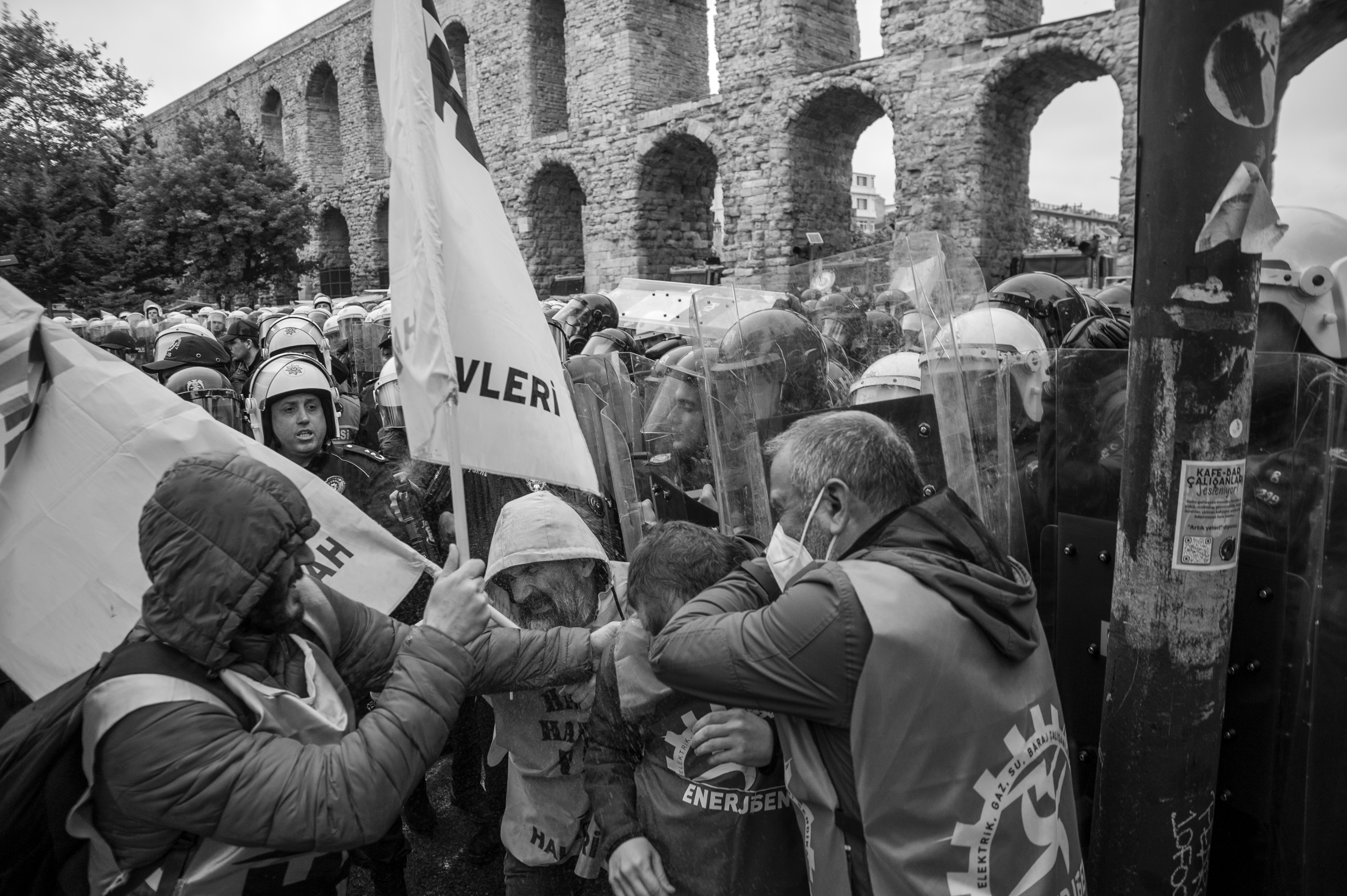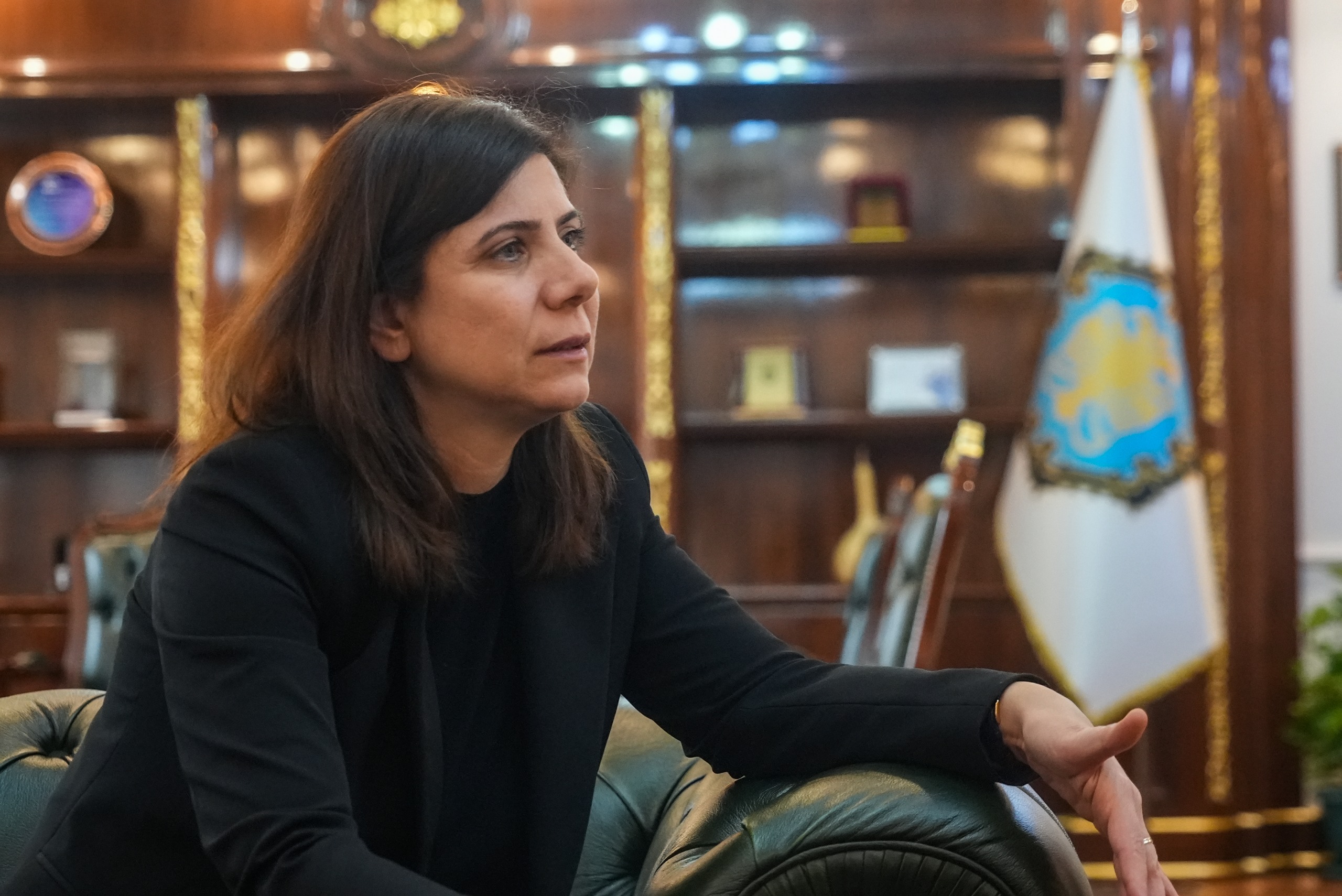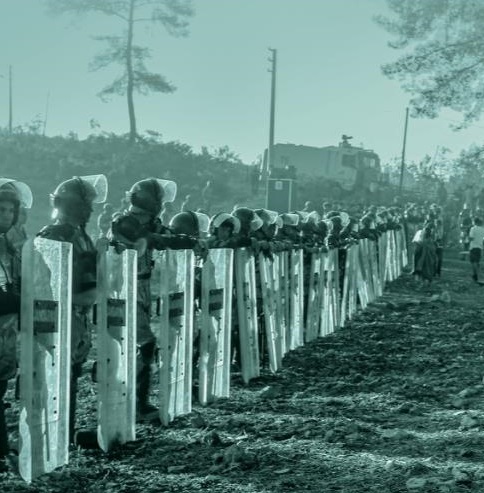We will get to the data, but what we will eventually reach is thought-provoking. The HRFT (Human Rights Foundation of Turkey) describes this process as "a progression from a state practice that systematically rights violations to the total abandonment of the idea of a rights-based regime". Universal law, of which Turkey is a part, fails to deter perpetrators. An equally important result is that these violations of rights take place in front of the eyes of the wider society and become normalized. In fact, places of torture have gone beyond the boundaries of four walls and spread to peaceful demonstrations expressing the demands for the most basic democratic rights and freedom of expression.
First, let's start with this report: The "level of news avoidance" has reached a record level on a global scale. According to the 2024 Digital News Report prepared by Oxford University Reuters Institute, only 46 percent of those interviewed say they follow the news by reading, listening or watching. This rate was 63 percent in 2017. The most dominant reason given is that the news is "depressing, brutal and boring". There are different filters for each country on what can be reported, in which media and how. When it comes to human rights violations, their ability to be reported is already affected by the environment that creates those violations.
The Human Rights Foundation of Turkey (HRFT) was born in 1990 as a collaboration between the Human Rights Association and the Turkish Medical Association, with the main goal of providing treatment and rehabilitation for torture survivors during the 1980 coup d'état. Since then, it has provided treatment and rehabilitation services to more than 22 thousand victims of torture and ill-treatment and their relatives; has made publications, conducted researches and provided training on the prevention of human rights violations defined in international human rights documents and domestic law. With five treatment and rehabilitation centres in Ankara, Diyarbakır, Istanbul, Izmir and Van, and a reference centre in Cizre, the HRFT is the only organization operating in this field and with this clear target.
Another important service of TİHV is the Treatment and Rehabilitation Centers Reports it prepares every year. The 2023 report, which has just been shared with the public, presents the rights violations, only some of which have been reported, in the form of a balance sheet based on the applications made to them. Categorizing violations and comparing data with the past allows us to reach holistic conclusions.
Unofficial police custodies
Before specifically addressing the topic of torture and other ill-treatment, the report looks at the period between January 1, 2023 and April 2024 from a general perspective, and first names the "multidimensional social crisis that accompanies and intertwines with the political crisis." In this crisis, the devastation caused by the pandemic period, the economic crisis and deep poverty exacerbated by neoliberal economic policies, war expenses and plunder economy are touched upon. The earthquake that occurred on February 6, 2023 indicates a deepening depression with a feeling of helplessness.
A closer look at the field of human rights reveals a dire picture based on "serious and structural problems and the authoritarian transformation that the political regime is undergoing." We will get to the data, but what we will eventually reach is thought-provoking. The HRFT (Human Rights Foundation of Turkey) describes this process as "a progression from a state practice that systematically rights violations to the total abandonment of the idea of a rights-based regime". Universal law, of which Turkey is a part, fails to deter perpetrators.
An equally important result is that these violations of rights take place in front of the eyes of the wider society and become normalized. In fact, places of torture have gone beyond the boundaries of four walls and spread to peaceful demonstrations expressing the demands for the most basic democratic rights and freedom of expression. This should be taken as a message to society about the masses that the government wants to present as enemies.
According to the report, at least 3679 people, including 58 children, were detained with torture and ill-treatment practices and at least 44 people were injured as a result of the intervention of security forces to peaceful protests and events organized within the scope of freedom of assembly and demonstration. Compared to the applications made to the HRFT in previous years, the rate of torture and ill-treatment on the streets and in open spaces has reached 77.4 percent. The report also shows that there is an increasing momentum, and that "unofficial custody" before official registration in vehicles belonging to the security forces and in open spaces has become commonplace. The rate of the most common practices such as beatings, punches, kicks, batons, etc. that the applicants were subjected to is 84.8 percent. In terms of regions, "insult, physical intervention and positional torture, exposure to chemical agents" are higher in Istanbul, Izmir and Ankara treatment centers. "Prevention of basic needs, coercive behaviors, sexual torture and exposure to physical factors" stand out in applications made to Diyarbakır, Van and Cizre offices.
Of the 731 applicants to the HRFT for torture, 240 were women and 428 were men. 63 applicants identified their gender identity as non-binary, queer or other. This year 39 children applied. It is important to note that 10 of the 13 children who expressed being tortured speak Kurdish as their mother tongue. The youngest of them is only 7 years old.
In 2023, six people died due to torture and other ill-treatment based on concrete evidence. Since 2019, when no deaths due to torture were reported, there has been one suspicious death each year. The HRFT underlines a grave situation that is also included in the August 2023 report of the UN Working Group on Enforced or Involuntary Disappearances: "We have to state that enforced disappearances or attempted disappearances/abductions, which started to be experienced again after the 1990s with the state of emergency declared in 2016, have become another characteristic feature of recent years."
On the other hand, prisons are overcrowded beyond their capacity. For example, between September 2023 and April 1, 2024, the number of detainees and convicts increased by 71,679 to 322,780. This is the fastest increase in Turkey's recent history. In the last 19 years, the number of detainees and convicts has increased more than five and a half times! This incredible increase means worsening physical conditions and increasing deprivation of rights. Strip searches, medical examinations with handcuffs, beatings, arbitrary disciplinary punishments, exile and transfers have become the "norm" in prisons in the last year. In 2023, at least 20 prisoners died in prison due to various reasons such as illness, suicide, violence and neglect. All these allegations are accompanied by a wall of impunity and lack of effective investigation.
Increased pressure on LGBTI+ people
While the hostility towards lesbian, gay, bisexual, transgender, intersex and queer individuals was fueled at various levels, 2023 was a year in which the pressure applied specifically to LGBTI+ people increased even more, with the increase in violence, discrimination and hate speech. According to the report, as a result of the police intervention in 18 peaceful meetings and demonstrations for women and LGBTI+ rights, at least 289 people, including 3 children, were detained and at least 3 people were injured. Unsurprisingly, according to the 2023 Global Gender Gap Report, Turkey dropped five more places to 129th among 146 countries.
Sometimes just looking at the statistics can have a sobering effect. Since July 2015, Turkey has been going through a period of widespread, escalating and almost systematic human rights violations. This is a period in which the prospects for a peaceful, democratic and just solution to the Kurdish question are diminishing. The HRFT report draws attention to the permanence of the state of emergency regime, the use of the "power to create uncertainty" as a technique of governance and the inactivity of oversight mechanisms. This means "moving away from the idea of a regime based on human rights".





